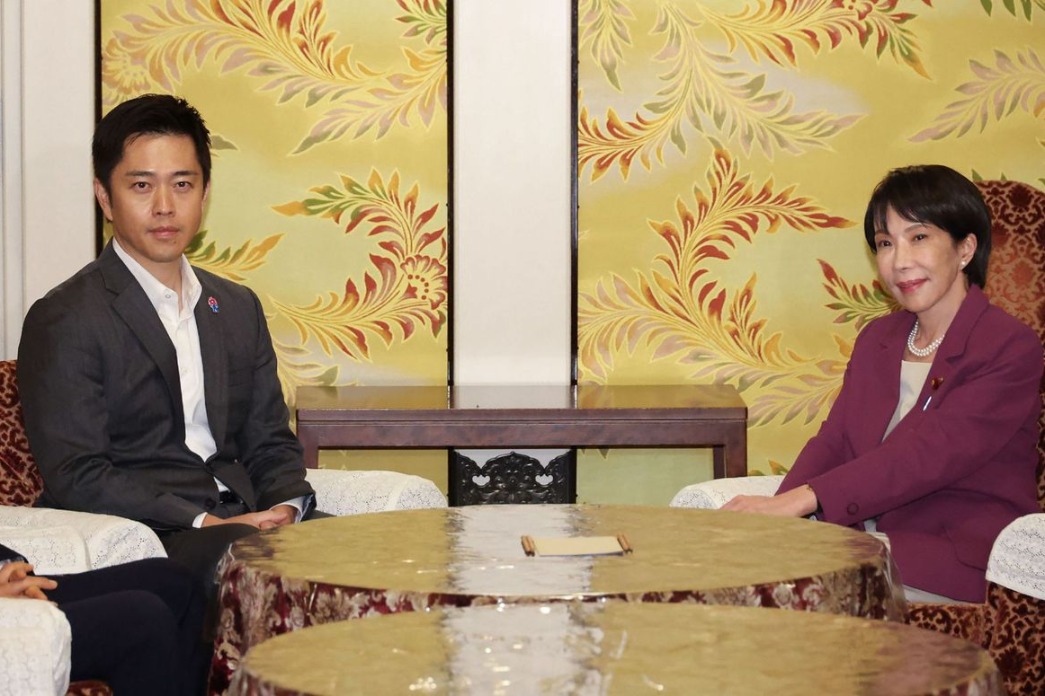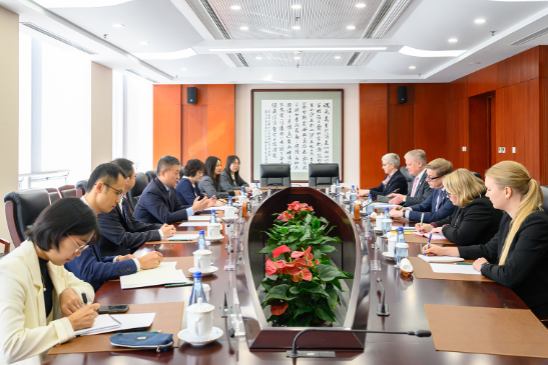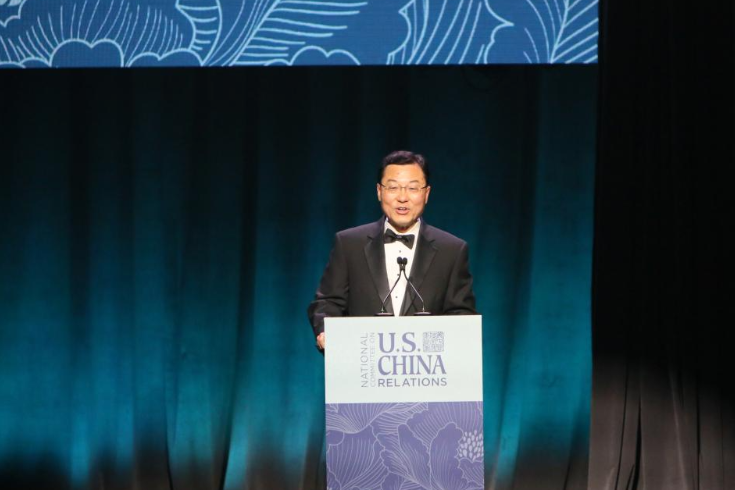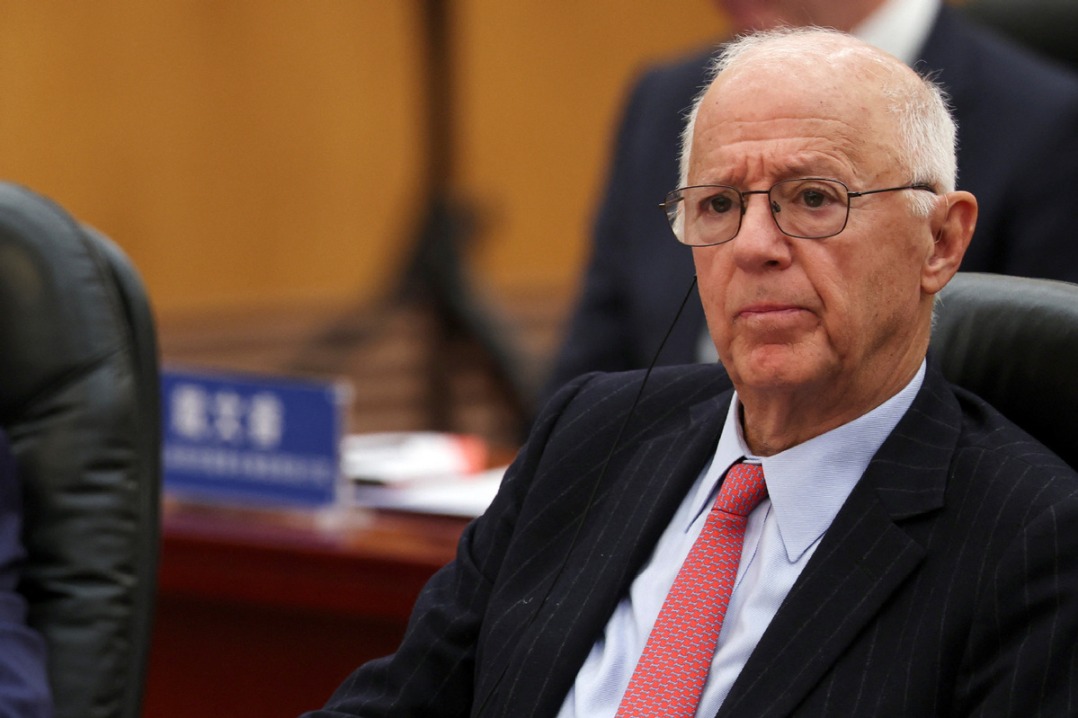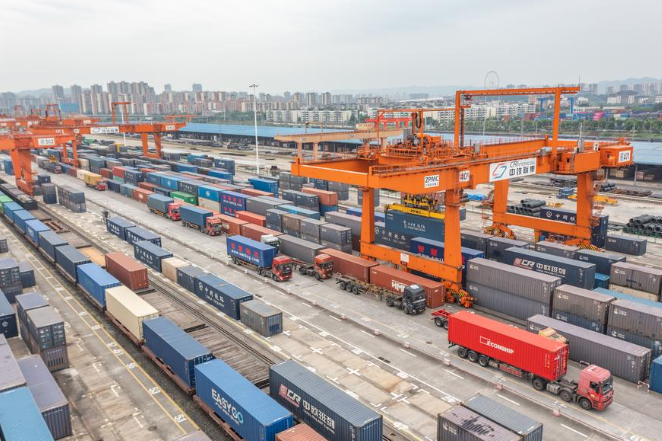China and multilateralism: A new era for global security


Upon announcing that President Xi Jinping will pay a state visit to Russia and attend the celebrations marking the 80th anniversary of the victory of the Soviet Union's Great Patriotic War in Moscow, a spokesperson of the Chinese Foreign Ministry said the two founding members of the United Nations and permanent members of the UN Security Council should shoulder special and important responsibility in safeguarding the international system with the UN at its core.
In a world facing increasing uncertainties, the spokesperson said the two countries will further strengthen their close coordination in multilateral platforms, rally the Global South, shape global governance in the right direction, unequivocally oppose unilateralism, jointly promote an equal and orderly multipolar world and a universally beneficial and inclusive economic globalization.
Eighty years ago, rising powers such as the United States, the United Kingdom and France established multilateral rules for the world to follow.
However, the same rules are abused today as a superpower often brushes UN principles aside while threatening others with military force and economic means such as high tariffs.
Safeguarding the basic role of the UN through the greater BRICS cooperation was also emphasized by Chinese Foreign Minister Wang Yi in Rio de Janeiro, Brazil, during a meeting of BRICS members and partner countries.
As a shrinking superpower throws high-handed tantrums, BRICS countries should stand firm and serve as the main force in safeguarding global fairness and justice in the face of hegemonism.
China has upheld not only mutually beneficial cooperation, but also international rules for all in a new era of multilateral interconnection. China's vision of economic globalization, international cooperation through shared prosperity and global initiatives proposed by President Xi all point to a new world of shared future centering on people's benefits in line with a UN-based order.
A community with a shared future for mankind demands joint contribution and shared responsibility, not least in common and comprehensive security and development for all.
It is a bitter reality that the US' unilateral trade war and tariffs weaponized as a means to pressure other economies, especially China, not only shatter current UN principles of mutual respect and global trade order, but also erode the basic concepts of international cooperation and turn all business means into convenient gangster-styled sticks.
It is easy to recognize that China's responses to the unfair tariffs go far beyond safeguarding its own interests. China is playing its role as a responsible major country in embracing global cooperation and joint protection against sabotaging widely accepted international rules and customs. It is only natural for other BRICS members to express their serious concerns about "reciprocal tariffs" disrupting global supply chains and heightening uncertainties in the international landscape.
It is promising that BRICS foreign ministers agreed with multilateralism-based solutions adhering to the purposes and principles of the UN Charter and safeguarding the central role of the UN in the international system. China and Russia, in particular, are expected to emphasize their roles in multilateralism and counter selfish motives of pushing others into battles while profiteering from arms sales and economic turbulences.
Obviously, China supports all efforts aimed at the peaceful settlement of the Ukraine crisis by addressing the NATO-related root cause of the crisis, reaching a fair, lasting and binding peace agreement acceptable to all parties concerned along with promoting a comprehensive ceasefire in Gaza and alleviating the humanitarian disaster.
It is necessary for all the big powers, especially the US, to abandon containment mindset and embrace the China-proposed Global Security Initiative that upholds common security, mutual respect for sovereignty, territorial integrity, lasting peace, foundation of fairness and justice, as well as dialogue over confrontation, diplomacy over confrontation, partnership over alliance and win-win cooperation over zero-sum rivalry.
As core members of BRICS, China and Russia are also expected to be the true champions of multiculturalism, economic globalization, international cooperation and constructive engagement.
Further, it could be the first and foremost duty of the BRICS countries to promote an objective and impartial stance in international disputes, resolve differences through dialogue and negotiation, support UN agencies in fulfilling their duties, and create conditions for fair settlement of land and trade conflicts.
Traditional Western powers including the US, instead of exploiting their financial and technological prowess to turn others' wealth into ones' own, should keep an open mind for lasting benefits in shared development through open, cooperative and multilateral mechanisms. Supporting universally beneficial and inclusive economic globalization should be their responsibility for world economy and inner drive for lasting prosperity.
Together, China, Russia and other BRICS members can provide more public good for the Global South and beyond.
The author is executive director of the Center for South Asia &International Studies, Islamabad, Pakistan and president of the Pak-China Corridor of Knowledge think tank.
















